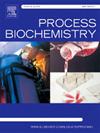Current state and future prospects of microbiologically produced nanoparticles: A narrative review
IF 3.7
3区 生物学
Q2 BIOCHEMISTRY & MOLECULAR BIOLOGY
引用次数: 0
Abstract
Nanoparticles (NPs) are being used in the rapidly developing field of nanotechnology. Nanotechnology research involves manipulating materials at the nano-scale to create new structures and devices that are beneficial to humans. Owing to their unique characteristics, nanomaterials have revolutionized numerous sectors and sped up numerous scientific breakthroughs while remaining at the nanometer scale. Research in this area is flourishing and of great interest to scientists. The present review offers researchers a comprehensive introduction to nanotechnology, focusing on nanoparticle biosynthesis routes, factors influencing the synthesis process, characterization methods, and current applications. Microbial nanobiotechnology, is a fast-growing area of research that holds the potential to revolutionize diverse fields such as bioremediation, energy generation, healthcare, and agriculture. Biological manufacturing of nanoparticles is more feasible than chemical synthesis, which can be costly and result in harmful repercussions. Microbes, particularly bacteria, are among the best options for the efficient production of nanoparticles because of their rapid growth rate, ability to be manipulated through genetics to achieve optimum efficiency, and relative lack of both expense and toxicity. It specifically explores the microbe-mediated biological synthesis of nanoparticles. This article presents an updated understanding of how biological synthesis can support innovative nanotechnology applications.
微生物生产的纳米粒子的现状与前景:叙述性综述
纳米粒子(NPs)正被用于快速发展的纳米技术领域。纳米技术研究涉及在纳米尺度上操纵材料,以创造出对人类有益的新结构和新设备。由于其独特的特性,纳米材料在保持纳米尺度的同时,为众多领域带来了革命性的变化,并加速了众多科学突破。该领域的研究方兴未艾,科学家们对此兴趣浓厚。本综述向研究人员全面介绍了纳米技术,重点是纳米粒子的生物合成路线、影响合成过程的因素、表征方法和当前应用。微生物纳米生物技术是一个快速发展的研究领域,有可能给生物修复、能源生产、医疗保健和农业等多个领域带来革命性的变化。生物制造纳米粒子比化学合成更可行,因为化学合成可能成本高昂并造成有害影响。微生物,尤其是细菌,是高效生产纳米粒子的最佳选择之一,因为它们生长速度快,能够通过遗传学操纵以达到最佳效率,而且相对来说没有成本和毒性。本文特别探讨了微生物介导的纳米粒子生物合成。本文介绍了对生物合成如何支持创新纳米技术应用的最新理解。
本文章由计算机程序翻译,如有差异,请以英文原文为准。
求助全文
约1分钟内获得全文
求助全文
来源期刊

Process Biochemistry
生物-工程:化工
CiteScore
8.30
自引率
4.50%
发文量
374
审稿时长
53 days
期刊介绍:
Process Biochemistry is an application-orientated research journal devoted to reporting advances with originality and novelty, in the science and technology of the processes involving bioactive molecules and living organisms. These processes concern the production of useful metabolites or materials, or the removal of toxic compounds using tools and methods of current biology and engineering. Its main areas of interest include novel bioprocesses and enabling technologies (such as nanobiotechnology, tissue engineering, directed evolution, metabolic engineering, systems biology, and synthetic biology) applicable in food (nutraceutical), healthcare (medical, pharmaceutical, cosmetic), energy (biofuels), environmental, and biorefinery industries and their underlying biological and engineering principles.
 求助内容:
求助内容: 应助结果提醒方式:
应助结果提醒方式:


